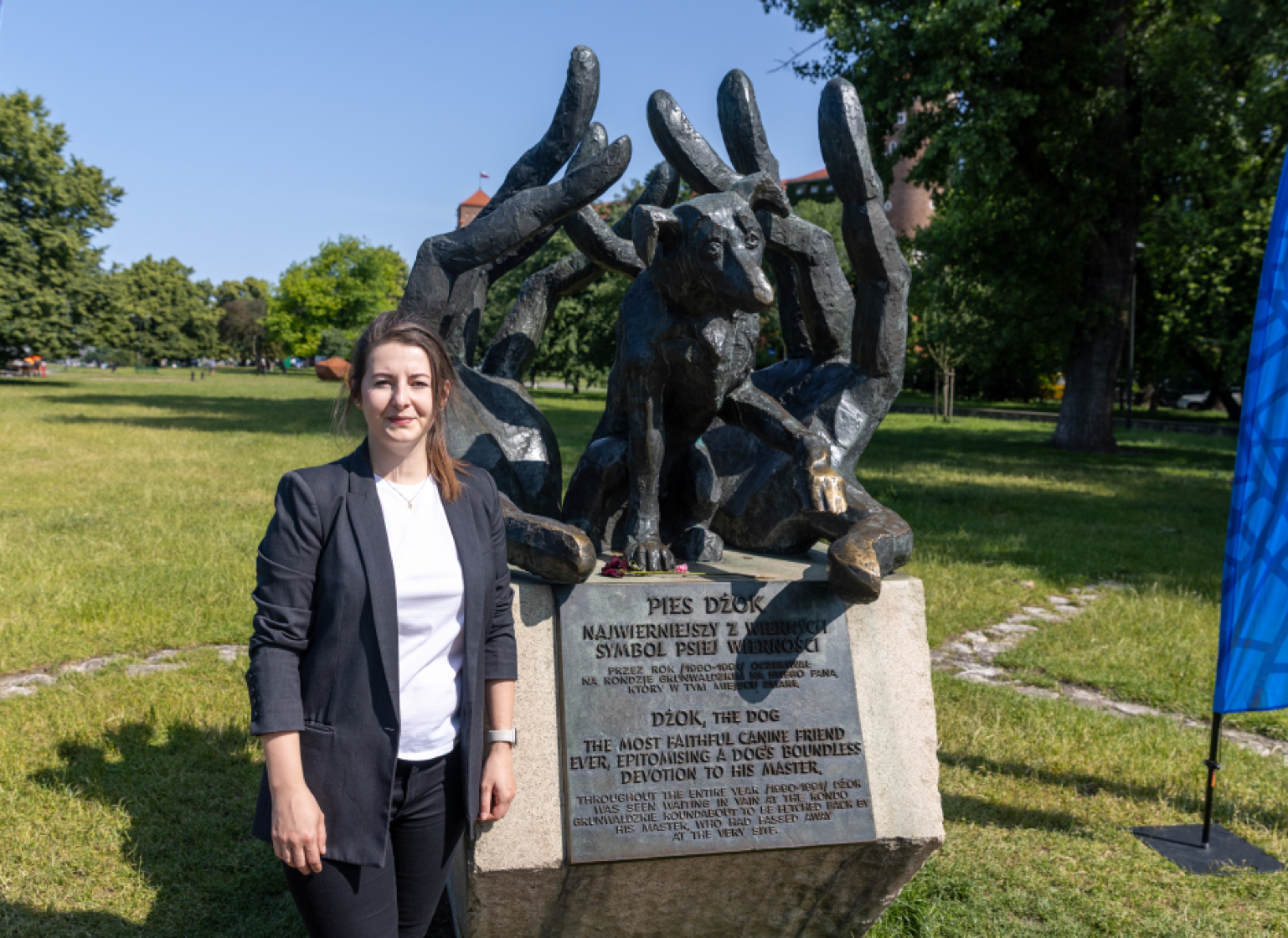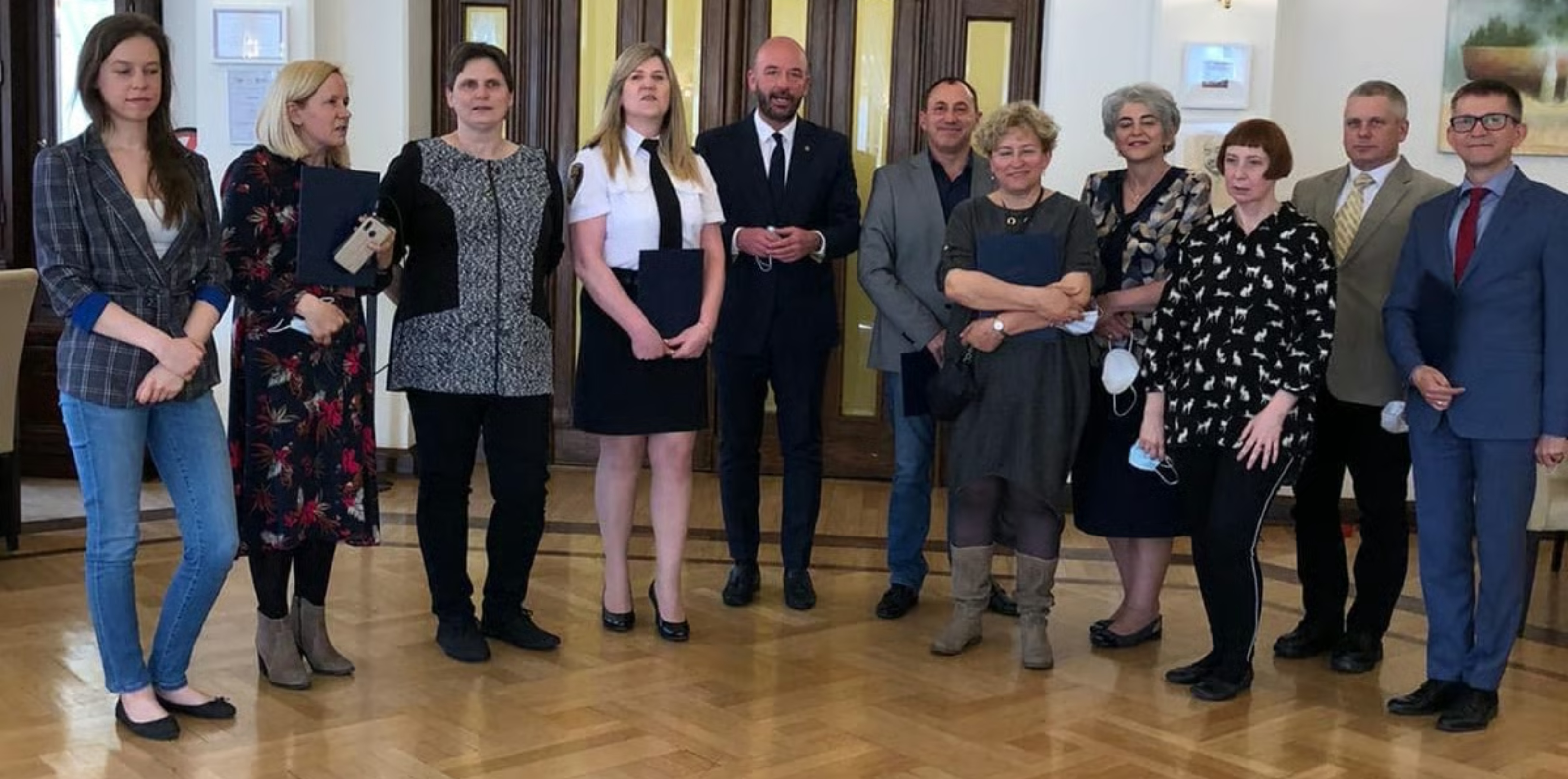Wild boar relocation ban. Without changes to regulations, they will remain with us in cities.

- Collaborating in the creation and implementation of a municipal program for the care of homeless animals, collaborating with non-governmental organizations and shelters, as well as reviewing projects and applications regarding animal-related matters – these are the main tasks of the newly appointed animal advocate in Krakow, Sabina Janeczko.
- In Wrocław, Barbara Borzymowska has been performing a similar function for several years, and she emphasizes that this position makes it easier to resolve difficult interventions, such as the issue of cats living in allotment gardens.
- Both spokeswomen agree on the need to introduce additional regulations at the national level. These include regulating the relocation of wild boars from urban areas, introducing certificates for animal welfare organizations, and restricting the use of fireworks.
Sabina Janeczko, a lawyer and veterinary technician, has been appointed Krakow's Animal Advocate. Aleksander Miszalski introduced her at a conference on June 13th, symbolically held at the monument to the dog Dżok. The Mayor of Krakow emphasized that the appointment of the Advocate is a response to the numerous concerns raised by residents regarding stray and abandoned animals, as well as wild animals living in the city.
We have grown as a society to treat animals as sentient, sensitive beings that need care.
- said Miszalski, who promised to address the problem of animals in the city during his election campaign.
Until June 27, Krakow residents could submit their opinions and comments on the Animal Advocate's action plan. The survey results are still being compiled, but Sabina Janeczko is already highlighting the most frequently expressed opinions.
"Residents are calling attention to the need to improve the situation of homeless animals. They place particular emphasis on activities related to spaying, neutering, mandatory microchipping, and education on responsible animal care. Among the demands is the need for closer cooperation with non-governmental organizations. Residents recognize the value of joint initiatives, information campaigns, and better coordination of activities that could truly help animals find new homes," he said in an interview with Portal Samorządowy.

She adds that there are also issues that require urgent action on her part. The most frequently mentioned issues include the lack of an animal cemetery in Krakow and a rehabilitation center for wild animals.
- Residents also pointed out the need for more effective interventions in cases of neglect or violence towards animals, and the need for education for children in schools, which can vary greatly, but also for older age groups, such as seniors - he lists.
He kept a pig in a tenement house and then released it into the forest.Barbara Borzymowska has served as the Mayor of Wrocław's spokesperson for animal rights for four years. She also chairs the Social Council for Animals and has been involved in animal rights activities for many years as an activist.
What assumptions have you achieved when you took over as spokeswoman?
"It's difficult to separate my activities as an advocate from my daily work on behalf of animals. I use this role especially when matters are difficult to resolve otherwise – because people respond much better to the term "mayoral spokesperson" than to "chief specialist from the Wrocław Without Barriers Office." When problems arise, for example, with feral cats in allotment gardens – when allotment holders or city presidents want to kick them out – I immediately intervene as the mayor's spokesperson. Recently, swans disappeared from a pond – no one knows what happened to them – and I also search for them as a spokesperson, because in this role people are much more willing to cooperate. I intervene in all difficult matters as a spokesperson, and I am also the chair of the Social Council for Animals, which makes my work even easier," says Barbara Borzymowska.
It receives interventions concerning dogs and cats, as well as wild and farm animals.
When something bad happens to wild animals, I also get calls. I can't help them directly because I can't travel or treat the deer, but I connect those who need help with those who can.
Barbara Borzymowska admits that the most difficult thing is sometimes cooperation with managers of housing cooperatives and allotment gardens.
"They assume they have regulations and will stick to them, regardless of what some spokesperson tells them. However, they don't realize that regulations are overridden by law . If the ROD regulations prohibit feeding cats, I don't care, because according to the law, such a ban cannot be implemented," he emphasizes.
One of the interventions he recalls involved keeping a Vietnamese pig in an apartment.
"We had a case of a man who kept a pig in his tenement building. When the animal grew older, he decided it wasn't suitable as a pet and tried to give it to a shelter. But since the shelter couldn't take such an animal, he simply dumped it in the nearby forest. Fortunately, the matter was resolved, and the man was punished. Such situations happen, too," admits Borzymowska.
The law that blocks local governments from taking action must changeWe asked animal advocates to what extent regulations should change at the national level to improve the situation of animals, but also to provide local governments with additional tools.
Indeed, there are regulations that hinder us when it comes to wild boars, for example. This is a problem not only in Krakow but also in other cities. Until the regulation prohibiting wild boar relocation is amended, there's very little we can do. Currently, we can't relocate them; we can only drive them into nearby bushes, and the other option, unfortunately, is culling. It's also worth noting that culling is prohibited within 150 meters of buildings. Therefore, a regulation permitting relocation would be necessary.
Sabina Janeczko also mentions the citizens' draft of the so-called Chain Law, which calls for the universal microchipping of dogs and cats, a ban on keeping dogs on a leash, and a ban on the use of fireworks. The Sejm (lower house of parliament) is expected to resume work on the bill after the summer break. According to the spokeswoman , there are growing societal expectations regarding fireworks , particularly among animal owners, but also among caregivers and companions of people with sound hypersensitivity or those suffering from post-traumatic stress disorder.
While everyone says that New Year's Eve would still be bearable, fireworks two weeks before and two weeks after are definitely problematic. As a city, we can't ban fireworks everywhere, but we are also looking for a solution to this problem. The draft law also addresses the important issue of keeping dogs on chains and the widespread use of pigeon spikes. These issues must be resolved in a way that benefits both animals and people.

Barbara Borzymowska emphasizes that freeing dogs from chains is crucial. The requirement to microchip them is also crucial. But all of this must be enforceable.
"Sometimes we have regulations that no one can effectively enforce. For example, one that states that a dog must be under the owner's control at all times and cannot be left unattended—but it doesn't specify that this also applies in front of a store. When an owner is shopping and the dog is tied up outside, it's hard to say there's any control. In fact, a fine should be issued for something like this—perhaps then others would be discouraged from leaving their dogs outside stores. In Norway, you can get jailed for up to six months for similar behavior," he says.
According to the Wrocław spokeswoman , there is much room for improvement in the area of cooperation with organizations.
"Some actually care for animals, but others work to the detriment of animals and to the detriment of people, while enriching themselves greatly. These are organizations that go far beyond their remit, and in fact, they deeply care about animals, but they don't care about the money they make from them," he says.
He adds that although introducing a ban on entering other people's land to save these animals is not good, "it needs to be civilized."
"It's unacceptable for someone in a uniform to just barge in and take a dog because they think it's in a terrible state, because they simply don't know what they're doing. These organizations need to be trained and certified. This is incredibly important," he emphasizes.
She adds that she would be very pleased if the law included a provision similar to the one in force in Austria.
"In Austria, anyone who wants to adopt or buy a dog and hasn't previously owned one must complete a four-hour course that provides basic knowledge about responsible dog ownership. Upon completion, they receive a certificate, which is necessary to advance to the next stages," explains the Wrocław animal rights advocate. "And if someone gives up on owning a dog simply because they don't want to devote four hours to such a course, then perhaps they really shouldn't have a dog," she adds.
Lawyers representing animals are appearing in court more and more often.Sabina Janeczko is a lawyer. We asked her what she thinks about representing animals in court. Such initiatives and lawyers are emerging around the world and in Poland. Is this a path to mental change?
"I think so. In this context, it's worth mentioning the wonderful group Lawyers for Animals and attorney Karolina Kuszlewicz, who represents animals in court, representing injured parties as an attorney for auxiliary prosecutors. I don't have a legal apprenticeship myself, but I'm watching with great interest what's happening, for example, in administrative courts, which handle cases related to interventions and the removal of animals. I've also already contacted representatives of the group Lawyers for Animals, and I hope that together we can support and collaborate in some way," says Janeczko.
portalsamorzadowy


